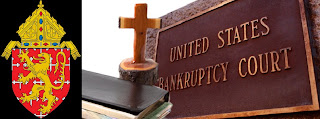IT was the courage of abuse victim and now campaigner Marie Collins in insisting rapist Fr Paul McGennis be brought to justice that helped expose how the Dublin Archdiocese protected its paedophile priests.
Church figures knew as early as 1960 that McGennis was abusing children. But he was still serving as a parish priest in Dublin 35 years later when Ms Collins went to the church authorities for a second time to report her abuser.
McGennis is the last of the 102 Dublin diocesan priests investigated by the Murphy Commission to face justice.
However, victims have insisted his jailing does not draw a line under the church's cover-up of abusive priests.
McGennis was given a pseudonym,
Fr Edmondus, in the commission's report, which traced his abuse to the late 1950s. He used his position as chaplain at Our Lady's Hospital for Sick Children in Crumlin, Dublin, from 1958 to 1960, to molest girls as young as eight.
Among them was Ms Collins, who was recovering from surgery, and was aged 13 when she was abused.
Part of the abuse involved taking photographs of naked girls and, anxious to conceal his crimes, McGennis sent the film to Britain to be developed.
However, a concerned technician at the processing company forwarded the film to Scotland Yard, which then notified gardai.
No garda investigation was launched.
Instead, the Garda Commissioner met with the Archbishop of Dublin, John Charles McQuaid, who took no action against the priest.
In 1985, Ms Collins reported the abuse to her local curate, who told her he did not want to know the name of her abuser as he would have to do something about it.
A decade later, she made a complaint to Archbishop Desmond Connell, McQuaid's successor, and the diocese assured her it would co-operate with gardai.
She received a letter from Monsignor Alex Stenson, the diocesan chancellor, who said McGennis had admitted the abuse.
However, when she gave the letter to gardai, a furious Mgr Stenson threatened to sue her and the diocese withheld its dossier on McGennis.
McGennis was eventually convicted in 1997 of abusing Ms Collins and another girl in his former parish in Co Wicklow. He received an 18-month sentence, which was later halved on appeal.
Speaking to the Irish Independent, Ms Collins pointed out that even now, as a convicted sex offender, McGennis remained a priest.
"I think they took his age and his vulnerability into consideration (when sentencing), but I think when he was abusing young children, such as myself and this victim, he didn't care about our age and vulnerability."
And while McGennis may be the last of the Murphy Report priests to be brought before the courts, child protection issues are still as relevant as ever.
"Until we can be sure that the old attitude and culture has changed, then a line can never be drawn under the Murphy report."













